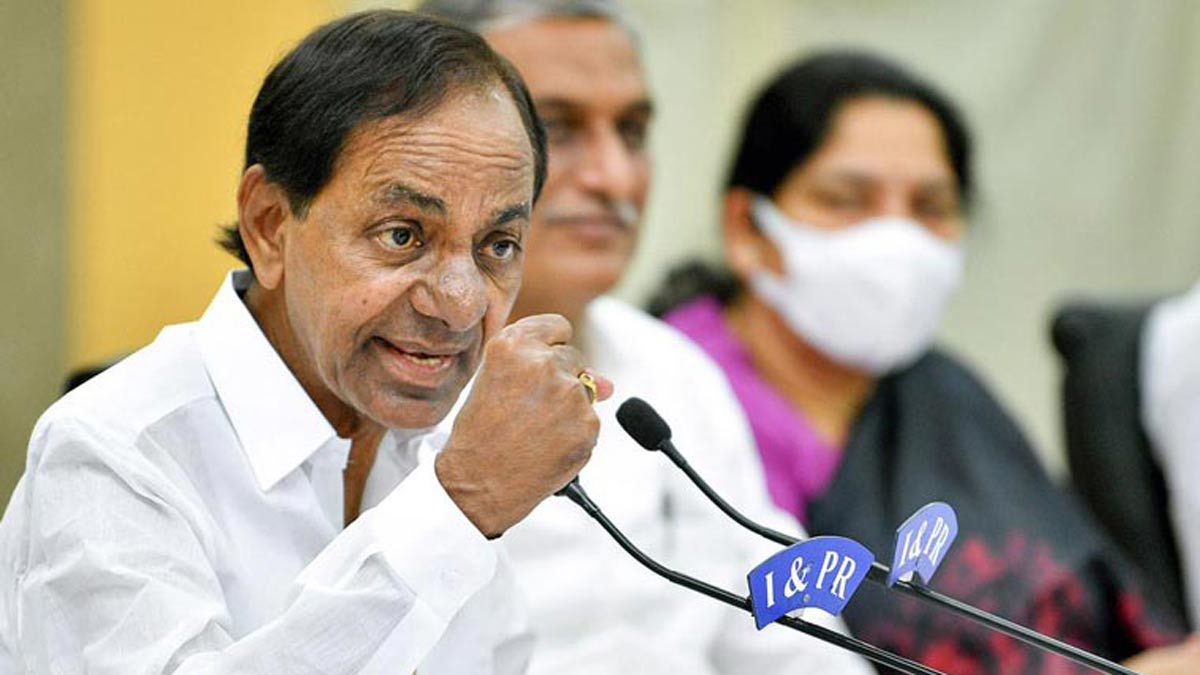The Election Commission of India (ECI) requires parties to submit annual audited reports by October 31 2024. NCP, Shiv Sena (both factions), RJD, NC, IUML and LJP (Ram Vilas) are yet to upload their accounts, even 313 days past the deadline.

(File) BRS chief and former Telangana CM K. Chandrashekar Rao | PTI
The Association for Democratic Reforms (ADR) has published its assessment of regional political parties’ audited financial statements for FY 2023–24, underlining significant gaps in transparency, concentration of income among a few parties, and the overwhelming reliance on electoral bonds as a funding tool.
The Election Commission of India (ECI) requires parties to submit annual audited reports by October 31 2024. Of the 60 recognised regional parties, only 40 reports were available for analysis. Twenty parties filed on time, another 20 submitted their accounts late, with some delays being as many as 216 days. The remaining 20, including the NCP, Shiv Sena (both factions), RJD, NC, IUML and LJP (Ram Vilas), had not uploaded their accounts even 313 days past the deadline.
According to the report, the total declared income of 40 regional parties during FY 2023–24 was Rs 2,532.09 crore, marking a 45.77 per cent rise from the previous year’s figure of Rs 1,736.85 crore. The top three parties to which this money has gone are: Bharat Rashtra Samithi (BRS) with Rs 685.51 crore, Trinamool Congress (AITC) with Rs 646.39 crore, and Biju Janata Dal (BJD) with Rs 297.80 crore. This accounts for more than 64 per cent of the total registered income. Together, the top five regional outfits cornered over 83 per cent of all reported income. AITC witnessed the sharpest increase, adding Rs 312.93 crore over the previous year, followed by TDP and BJD. On the other hand, 15 parties saw a decline in receipts, while the Goa Forward Party again declared zero income but reported minor expenses of its own.
The analysis revealed that political funding remains heavily dependent on electoral bonds. Out of Rs 2,532 crore earned collectively, Rs 2,117.84 crore, or 83.64 per cent, came from voluntary contributions. More than 70 per cent of the income- Rs 1,796.02 crore, was secured through electoral bonds. Only 10 regional parties disclosed bond receipts. These include BRS, AITC, BJD, TDP, YSR-Congress, DMK, JD(S), SKM, JMM and SDF. The reliance on electoral bonds has been criticised for making political funding opaque.
As regards expenditure, there are sharp differences among the parties. The 40 parties collectively declared spending Rs 1,320.96 crore in 2023–24. YSR-Congress topped the chart with Rs 295.76 crore, followed by BRS (Rs 254.91 crore), AITC (Rs 231.47 crore), DMK (Rs 200.06 crore) and TDP (Rs 121.09 crore). These five parties alone accounted for more than 83 per cent of the total expenditure.
While parties like BRS, AITC and BJD registered massive surpluses, leaving Rs 430.60 crore, Rs 414.91 crore, and Rs 253.79 crore unspent respectively, at least 12 regional outfits, including YSR-Congress and DMK, actually overshot their income. YSR-Congress, in particular, declared spending 55 per cent more than what it earned.
ADR’s observations highlight recurring problems. A majority of party expenditure is absorbed under administrative and election-related costs. Non-compliance is also a major issue. From FY 2017–18 to 2023–24, at least 16 parties each year defaulted on submitting annual audit reports. The Election Commission has failed to impose genuine penalties.
In its recommendations, ADR has called for sweeping reforms. It suggests that political parties should not be allowed to keep donation details incomplete in Form 24A, while all donor information must be placed under RTI for public scrutiny. Tax exemptions, it argues, should be withdrawn from parties that fail to submit their IT returns by the due date, and persistent defaulters should face derecognition. ADR has also urged the ECI and Income Tax Department to enforce auditing guidelines strictly, and to penalise frequent offenders rather than relying on notices and reminders.

